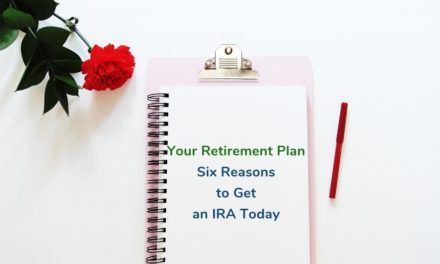On graduation day new graduates are probably incredibly excited. They’re finally out of school and in the “real” world, making a nice income and building a career of their own. It’s an exciting new phase.
The only problem, of course, is that their financial woes may just be starting. Many graduates expect to be able to handle their financial burdens once they’re out of college and in a good job.
But a study conducted by the National Survey of Student Engagement revealed that a third of students suffer from stress stemming from financial problems.
Graduating isn’t quite the solution they expect.
A new graduate will have to deal with more financial problems down the line, especially if they are saddled with student loans. Given this economy, finding a well-paying job isn’t easy, either.
As such, it’s important for them to be financially smart as they learn how to stand on their own two feet.
Ten Useful Money Tips for New Graduates to Consider
Don’t Change Your Lifestyle Just Yet
A lot of graduates tend to incur “lifestyle inflation” the moment they start working. They now have an income, they’re independent, and they believe they can spend their cash on anything they want. In a way, there’s also the “I deserve it” mentality, wherein a person starts equating these material things with “rewards” for working hard every day.
The problem with this mentality is that you keep accumulating and yet the returns of such material things wane over time.
You might find that your new car is incredibly wonderful now, but in a few months you’ll be off looking for other new things to buy.
Remember To Live Within Your Means
From day one you want to practice living within your means.
It’s a good idea to set up a budget system, wherein you only spend what you have.
Don’t be tricked into spending more than you can afford and do not start using credit cards to fund a lifestyle of shopping and partying.
That’s the easiest way to lose track of your finances. It’s a slippery slope you don’t want to get started on.
Start Saving
One thing a lot of financial experts repeat incessantly is the matter of compound interest. It doesn’t matter how much you save, as long as you do – over a significant period of time.
If you save a small amount steadily every month for forty years, that’s more than you can get if you save a large amount in just one or two years.
Start saving, the minute you get your first pay cheque.
This way, you’ll be able to set up a reliable retirement fund for your golden years. It’s a long way away, but this is the easiest and best way to have a nice nest egg for yourself.
Don’t Add To Your Debts
Chances are, you already have your student loans to deal with. It’s a serious problem that will burden you for a significance amount of time. So, why add to your debt?
It’s best to protect yourself from additional burdens.
One way to save yourself from added debt is to avoid credit cards. You do not want to be trapped by credit card debt. Don’t take out new loans unless they’re really necessary.
This is where “living within your means” really becomes important. If you stick to your budget and buy only what you can afford, you will be a lot happier than the people that continue to increase their debt load.
Pay Your Bills On Time
Once you graduate and begin working you need to become completely independent, and you need to stop relying on someone else to manage your finances for you. If you lived alone while in college, you already have some practice doing this.
However, it’s still important to train yourself to pay off all your bills on time or earlier. This way, you won’t lose track and forget. Delayed payments have very hefty late charges that can seriously derail your finances.
Learn How To Be Frugal
Since you’ll need to live within your means, it’s important to pick up a few techniques on being frugal.
Stop dining out and learn how to cook! As well, if you enjoy meeting friends on the weekends at the local bar to party, think about how much that is costing you each month.
And when it comes to shopping for new clothes, skip the high priced designer stores and shop at outlet stores or wait for clearance sales.
Don’t Move Back In With Your Parents
I know people that have gone to school, gotten good jobs, but still move back in with their parents – this may be part of your culture. But if it isn’t and you are simply doing it to avoid taking on the responsibilities that many people face once they graduate and find a job, you are only hurting yourself.
After you graduate you want to learn how to live independently and push your way through without falling back on your parents’ assistance.
Even if your parents can afford to take you in, or can afford to loan you money, avoid doing that.
Now is when you need to learn how to manage your own finances based on your income and your own skills.
Look For A Career, Not Just A Job
Some people take on high-paying jobs in industries they are not interested in. This isn’t a good idea at all.
You may think it’s ideal since you’re getting a hefty pay cheque, but in the long run you’re sacrificing your chance to build a career in an industry you are actually interested in. It’s better to take a low-paying job doing something you love, and then work on finding ways to increase your income in that field of work.
Prioritize Your Student Debt
As per USA Today: “The loans that gave college students the funds they needed to move forward in life are now holding them back.”
A lot of new graduates think they can delay repaying their student loans. Though this may be possible in some cases, it’s best to find a way to pay off your loans before you make any more purchases or increase your expenses.
You don’t want to have to deal with student debts and housing loans in the future, do you?
Get rid of your student loan debt as soon as you can.
Create a payment plan that you can stick to.
Learn More About Managing Your Finances
This is something that many people unfortunately avoid doing. You can’t stop learning just because you’re out of school. Take some time to learn more about how the overall economy works, as well as what you can do to ensure that you quickly pay off any debt that you currently have, and remain debt free for the rest of your life.





